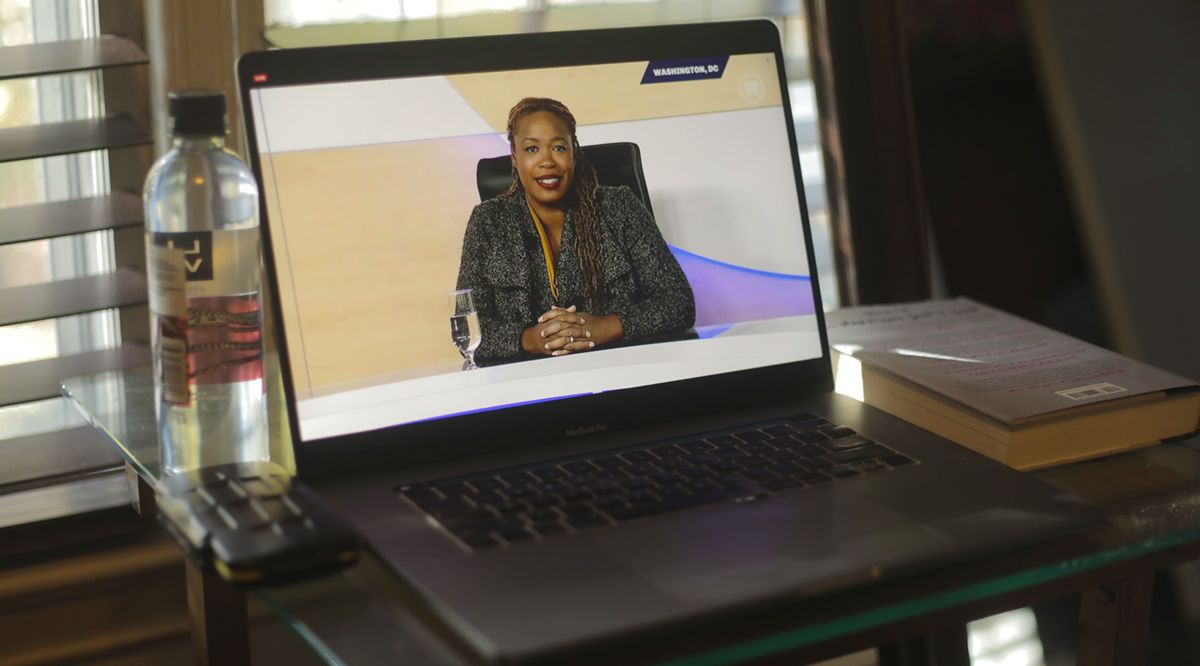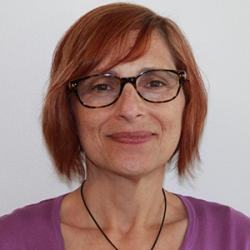
After decades of work in policy and economics, Heather McGhee, JD, says she eventually had a major realization: So many of this country’s problems, from a decaying infrastructure to inadequate health care, stem from the false notion that success for people of color comes at the expense of White people.
“Our progress [as a nation] is being held back by a lie,” McGhee said during a session titled "The Hidden Costs of Racism" at the AAMC’s annual meeting on Nov. 9. “It says that there is a fixed pie of well-being in society, and if I get a bigger slice, you must get a smaller one. It’s a zero-sum story.”
What’s more, this false story is perpetuated by those who are determined to hold onto power, McGhee told session moderator Dayna Bowen Matthew, JD, PhD, dean of George Washington University Law School.
“Who ultimately benefits from a small government, low taxes, no ability to regulate pollution, no ability to have strong regulations around labor and worker power? It’s the wealthy and corporations,” said McGhee, who serves as chair of the online racial justice group Color of Change.
In truth, we all rise or fall together, McGhee said, citing research that the Black/White economic divide has cost the U.S. economy $16 trillion over the last 20 years.
Describing a phenomenon captured in her bestselling book, The Sum of Us: What Racism Costs Everyone and How We Can Prosper Together, McGhee detailed how, during desegregation, communities often opted to close public pools rather than open them to Black people.
McGhee highlighted parallels in other aspects of American life, including a failure to support paid family leave, affordable housing, and access to a free or low-cost college education. Too often, efforts to advance such public goods stalled when many White people came to believe they primarily helped non-White people, she said.
Turning to environmental issues, McGhee noted that policymakers often place toxic waste sites in low-income neighborhoods. The result, though, is less concern about pollution, which ultimately affects everyone. We’re all “breathing under the same sky,” she said.
Asked how she knows that racism underpins the dearth of policies that would benefit all, McGhee pointed to a “raft” of social science research. “There’s a 16-percentage point spread in the intensity of opinion about government spending … based on how strong someone’s racial resentment is,” she said.
Racism and the crucial role of social determinants of health were evident in the impact of COVID-19, she added.
“The first impulse was this is behavioral … and then it turned out [that] it was about people of color being more likely to be essential workers, to have to go to work and be exposed, to have to take public transit, and not having the 5,000-square-foot homes to socially distance if they got sick. These were the drivers of this country not being able to contain the pandemic early on,” she said.
Turning toward solutions, McGhee emphasized the powerful place of education.
Fewer than 10% of high school seniors know that slavery was the primary cause of the Civil War, she noted. In terms of medical schools, better education means addressing stereotypes about Black people feeling less pain, for example. “If you have an honest understanding of how racial stereotypes have been used throughout history … then you’re going to be vigilant” and seek the truth.
Having traveled the country to research her book, McGhee says she has seen people looking for the truth and coming together in what she calls the solidarity dividend. “This turn towards one another is happening in every corner of the country facilitated by the consciousness shifts of the racial justice movement and of the pandemic.”
This phenomenon has her feeling hopeful about the future. Ultimately, she said, “I really do believe that diversity is America’s superpower.”
